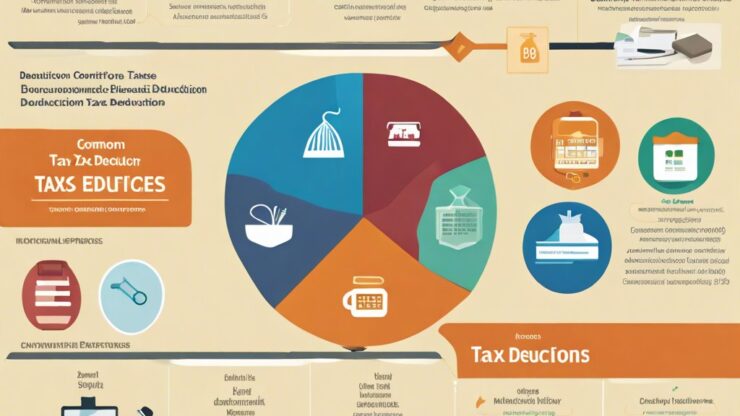As the tax season approaches, many individuals and businesses are scrambling to ensure they maximize their deductions. However, countless taxpayers overlook potential deductions that could significantly reduce their tax liability. By understanding and utilizing these common yet often-missed tax deductions, you can keep more of your hard-earned money in your pocket.
Unleashing the Power of Itemized Deductions
While the standard deduction is a straightforward option, itemizing your deductions can lead to substantial savings, especially if you have significant expenses. Many taxpayers fail to realize what qualifies as an itemizable expense. From medical expenses to unreimbursed work-related costs, ensuring you capture all eligible expenses is crucial.
- Medical and Dental Expenses: If your medical expenses exceed 7.5% of your adjusted gross income (AGI), you can deduct the excess.
- State and Local Taxes (SALT): You can deduct state and local income taxes or sales taxes, up to $10,000.
- Mortgage Interest: Homeowners can deduct the interest paid on their mortgage, which can be a significant deduction.
- Charitable Contributions: Donations to qualified charitable organizations are deductible, including cash and property donations.
Education-Related Deductions: A Goldmine for Students and Parents
Education expenses can add up quickly, and fortunately, there are several tax deductions and credits available to help. Many taxpayers overlook these, which can lead to missed opportunities for significant savings. Understanding what qualifies can help students and parents alike reduce their financial burden.
- Tuition and Fees Deduction: This deduction allows you to deduct qualifying education expenses for yourself or dependents.
- Lifetime Learning Credit: If you’re pursuing higher education or improving job skills, this credit can reduce your tax bill by up to $2,000 per return.
- Student Loan Interest Deduction: You can deduct interest paid on qualified student loans, up to $2,500.
Disclaimer
This article has been created or edited with the support of artificial intelligence and is for informational purposes only. The information provided should not be considered investment advice. Please seek the support of a professional advisor before making any investment decisions.






